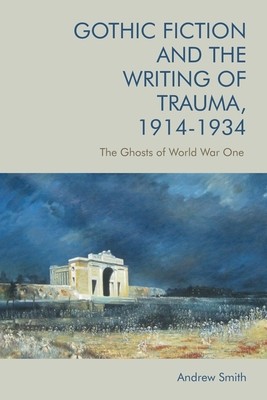
- We will send in 10–14 business days.
- Author: Andrew Smith
- Publisher: Edinburgh University Press
- ISBN-10: 1474443435
- ISBN-13: 9781474443432
- Format: 15.6 x 23.4 x 1.4 cm, kieti viršeliai
- Language: English
- SAVE -10% with code: EXTRA
Reviews
Description
This book examines how the representation of the ghost-soldier in literature published between1914-1934, both marks the presence of trauma and attempts to make sense of it. Andrew Smith examines short stories, novels, poems and memoirs that employ ghosts to reflect upon feelings of loss, paralleling the literary context with accounts of shell-shock which construe the damaged soldier as psychologically missing and therefore spectre-like.
The author argues that literary and non-literary texts repeatedly deploy a form of the uncanny, familiar from a Gothic tradition, as a way of reflecting upon grief. In support of this claim, he draws on fiction by well-known authors such as M. R. James, E. F. Benson, Dorothy L. Sayers, and Dennis Wheatley, alongside largely forgotten contributions to The Strand and other periodical publications such as The Occult Review.
EXTRA 10 % discount with code: EXTRA
The promotion ends in 23d.15:48:20
The discount code is valid when purchasing from 10 €. Discounts do not stack.
- Author: Andrew Smith
- Publisher: Edinburgh University Press
- ISBN-10: 1474443435
- ISBN-13: 9781474443432
- Format: 15.6 x 23.4 x 1.4 cm, kieti viršeliai
- Language: English English
This book examines how the representation of the ghost-soldier in literature published between1914-1934, both marks the presence of trauma and attempts to make sense of it. Andrew Smith examines short stories, novels, poems and memoirs that employ ghosts to reflect upon feelings of loss, paralleling the literary context with accounts of shell-shock which construe the damaged soldier as psychologically missing and therefore spectre-like.
The author argues that literary and non-literary texts repeatedly deploy a form of the uncanny, familiar from a Gothic tradition, as a way of reflecting upon grief. In support of this claim, he draws on fiction by well-known authors such as M. R. James, E. F. Benson, Dorothy L. Sayers, and Dennis Wheatley, alongside largely forgotten contributions to The Strand and other periodical publications such as The Occult Review.


Reviews